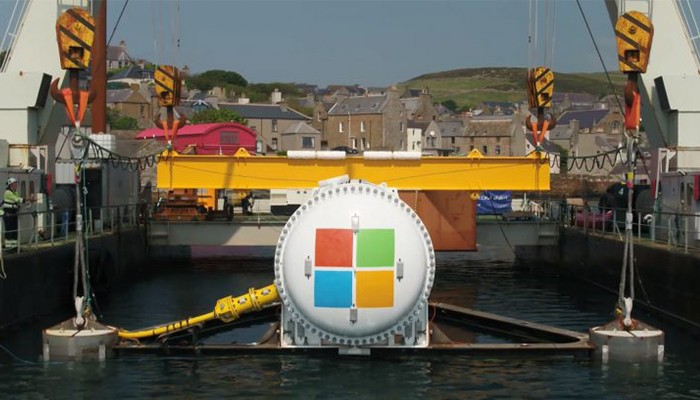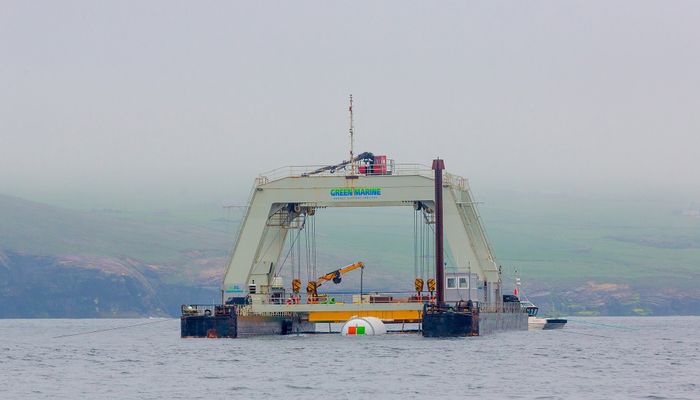
Microsoft Set To Disrupt The Tech World With An Underwater Data Center
- Microsoft has now submerged 864 servers deep into the Scottish Sea under Project Natick - a research project based on an underwater data center.
- This research project is accountable for storing 27.6 petabytes of storage.
- The new submerged data center is as powerful as thousand high-end desktop PCs.
In recent news, Microsoft is all set to make an impact on an unmarked territory – underwater data centers. The research project was first piloted in 2014 and is called Project Natick. The software giant seeks to accomplish the newest green tech idea that will not only save energy but significant amounts of money as well.
According to the latest news, the second phase of Project Natick consists of 864 servers in 12 racks that are crammed into a bus-sized metal cylinder. The idea behind the project is to determine whether there is a possibility of saving energy by deploying the servers in the sea. It goes without saying that data centers are running numerous servers at once that generates heat in abundance. Initially, the tech giants were building and deploying data centers in cooler countries in an attempt to save energy.
Image Courtesy of Microsoft
The spokesperson of Microsoft said in a statement, “It’s our belief that this type of data center could lead to reduced costs and simpler structures that incorporate fewer materials, requiring less maintenance and electricity.”
However, Microsoft came up with the idea to cool the data centers by sinking them 117 feet below the surface of European Marine Energy Center. We know that oceans maintain a slightly cooler temperate which does not change below a certain depth. The software giant capitalized on this idea and came up with an underwater data center to cut down on the ‘ever-increasing’ cooling costs.
The project manager of Natick, Ben Cutler, was also skeptical about the idea of underwater data centers. He stated, “When I first heard about this I thought, ‘Water…electricity, why would you do that?’ But as you think more about it, it actually makes a lot of sense.”








